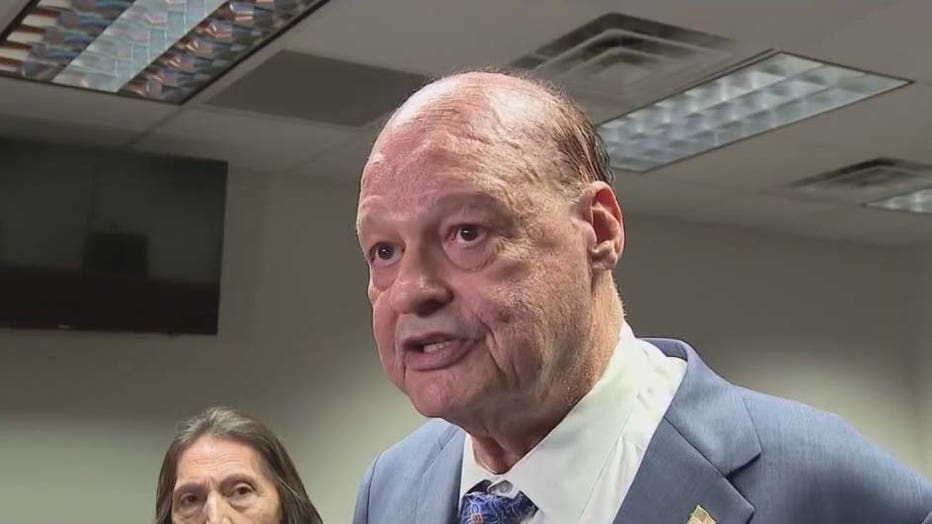Arizona superintendent Tom Horne to use COVID relief for $40 million tutoring program
PHOENIX - Arizona is channeling $40 million in federal COVID-19 relief funding toward tutoring students falling behind in school, the state superintendent said Tuesday.
Superintendent of Public Instruction Tom Horne announced at a news conference that free tutoring will be available for students who failed to pass proficiency tests in reading, writing and math.
The tutoring program, however, will be given on a first-come, first-serve basis. Only students between first and eighth grade at public and charter schools will be eligible. Parents can request it through the state Department of Education website.
"I have one obsession in life. My obsession is that we increase the proficiency levels of the students in the schools and that we help the teachers achieve that," Horne said.

Tom Horne makes $40M available for free tutoring
State Superintendent of Public Instruction Tom Horne announced at a news conference that free tutoring will be available for students who failed to pass proficiency tests in reading, writing and math.
The funding will cover over one million hours of tutoring for four days a week over a six-week period. Either a certified teacher or a private vendor approved by the state would do the tutoring, according to Horne.
Teachers will be paid $30 per hour. If they make sufficient progress in that six-week window, they will get an additional $200 stipend. A teacher who can find the time to tutor could potentially make $8,000 overall.
"This will help the teachers improve their income," Horne said.
A spokesperson for the Arizona Education Association, the state’s largest teachers union, did not immediately respond to a message seeking comment.
The federal government earmarked $2.7 billion to Arizona to assist with pandemic-driven learning loss. Roughly 90% of that money went to districts around the state. That left $130 million for the Arizona Department of Education. Funds not used by the end of September 2024 will revert to the federal government.
The timetable led state education officials to ask vendors of tutoring services to submit data to prove they had made academic gains with students. Those that failed to do so had their contracts canceled.

Arizona Superintendent of Public Instruction Tom Horne.
Some who made gains but weren’t spending the funds at a steady rate had their grants reduced. Twenty-seven grants in all were modified or canceled.
"We do want to be sure that nothing goes back to the federal government. So we took back part of their funds. That all came to in excess of $40 million," Horne said.
A dramatic decline in student learning since the pandemic is a problem schools all over the country are facing. Most education experts say intensive tutoring is the best solution.
Despite billions of dollars in federal funding, only a small fraction of students have received school tutoring, according to a survey earlier this year of the country’s largest districts by the nonprofit news organization Chalkbeat and The Associated Press.

AZ teachers could be paid to tutor with new funding
Arizona is channeling $40 million in federal COVID-19 relief funding toward tutoring students falling behind in school, the state superintendent said Tuesday. These pandemic-era deficiencies are substantial, according to those witnessing it firsthand.
"Reading and writing which is one test. 60% of the kids did not perform as proficient, and in math, 66% of the kids did not perform as proficient," Horne said.
These pandemic-era deficiencies are substantial, according to those witnessing it firsthand.
"I have seen some students that haven’t been back in the classroom at all. Parents have decided to homeschool them, and it wasn’t done as effectively as needed. So, some students are three years behind," said Shannon Nichols, teacher and owner of Bright Tutoring. "So many friends and family members that are teachers come to me, and unfortunately have to make an extra buck. And tutoring is the best way to do it."

